Rare woman yakuza on path to redemption in Japan
Sign up now: Get ST's newsletters delivered to your inbox
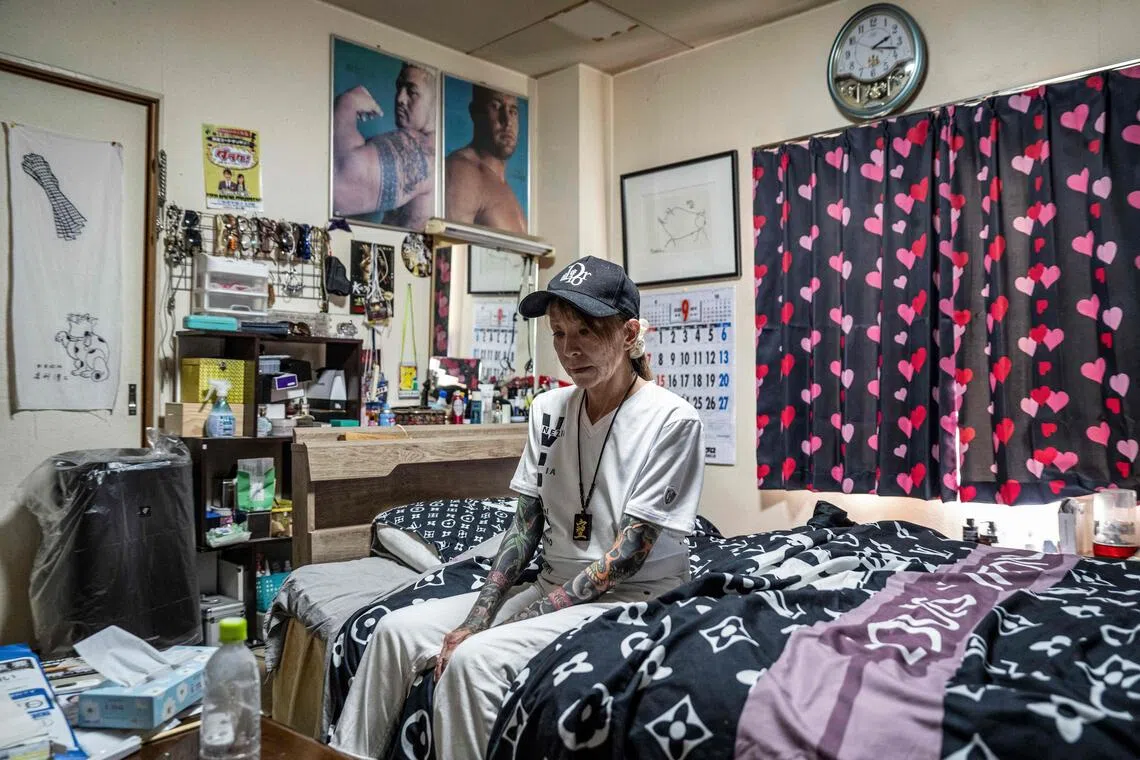
Retired yakuza Mako Nishimura now spends her days helping other retired gangsters reintegrate into Japanese society.
PHOTO: AFP
Follow topic:
GIFU, Japan – A missing fingertip offers a clue to Ms Mako Nishimura’s criminal past as one of Japan’s few women yakuza. But after clawing her way out of the underworld, she now spends her days helping other retired gangsters reintegrate into society.
The multibillion-dollar yakuza organised-crime network has long ruled over Japan’s drug rings, illicit gambling dens and sex trade.
In recent years, the empire has started to crumble as the number of members dwindled and anti-mafia laws are tightened.
An intensifying police crackdown has shrunk yakuza forces nationwide, with their numbers dipping below 20,000 in 2024 for the first time since records began in 1958.
Heavily inked with dragon and tiger tattoos, 58-year-old Ms Nishimura navigated the yakuza’s patriarchal hierarchy – where brute force and authoritarian leadership reign – on and off for three decades.
Rival gangsters “looked down on me just because I am a woman, which I hated”, she told AFP at her cramped apartment in central Japan’s Gifu region.
“I wanted to be acknowledged as a yakuza,” she said. “So I learnt to speak, look and fight like a man.”
Ms Nishimura said she was officially recognised by the authorities as the first woman yakuza after she was jailed for drug possession when she was 22.
While no official police data verifies this, experts say women members are extremely rare.
Retired anti-mob detective Yuichi Sakurai said he had never seen a woman yakuza in his 40-year career but “it was possible a few are included” in the annual numbers tracked by police, which do not give a gender breakdown.
Ms Nishimura, skinny with dyed-blonde hair, finally put the syndicate behind her about five years ago.
She now ekes out a living at demolition sites – one of the few jobs that tolerate her full-sleeve tattoos.
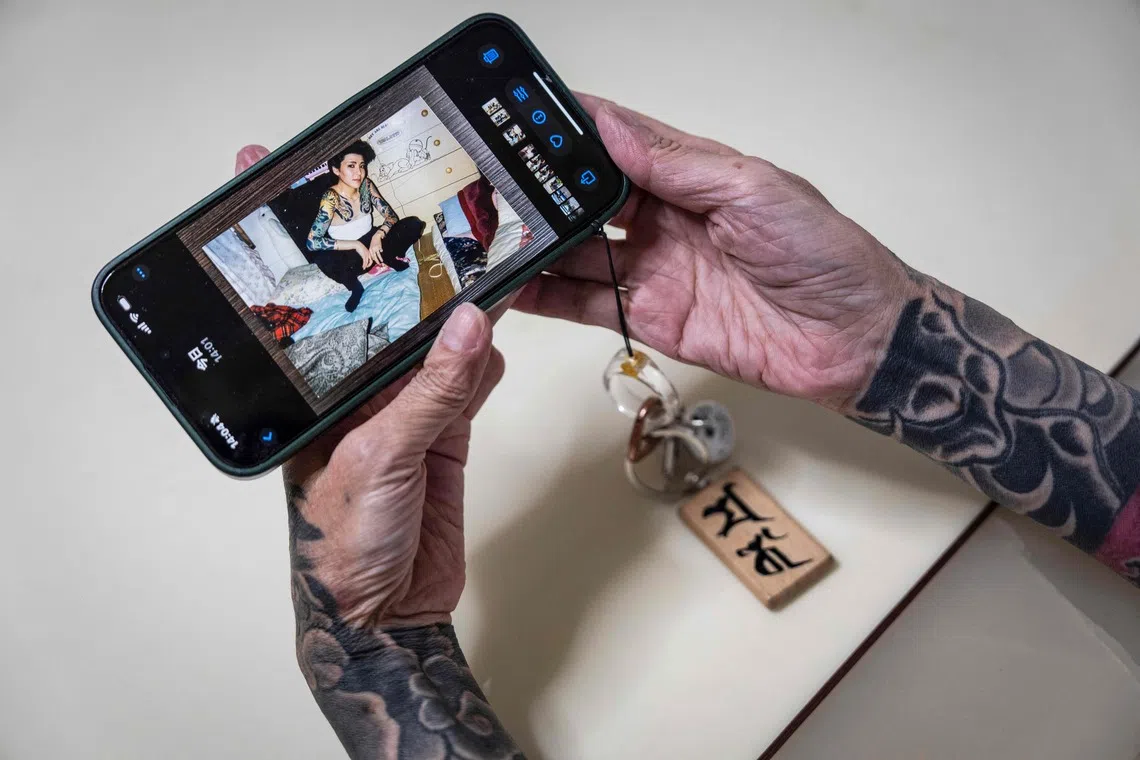
Ms Mako Nishimura showing a picture of her younger self when she was a part of the underworld.
PHOTO: AFP
She also supports other mafia retirees, taking huge pride in leading the Gifu branch of Gojinkai, a non-profit organisation dedicated to helping former criminals.
Mr Yuji Moriyama is among the posse of middle-aged tough guys – one has a prominent knife scar across his belly – that Ms Nishimura takes out for monthly litter-picking trips.
“She’s like a big sister. She scolds us when we deserve it,” 55-year-old Mr Moriyama said, recalling a time he skipped the rubbish collection and she made him kneel on the ground to apologise.
“She scared the hell out of me,” he said, laughing.
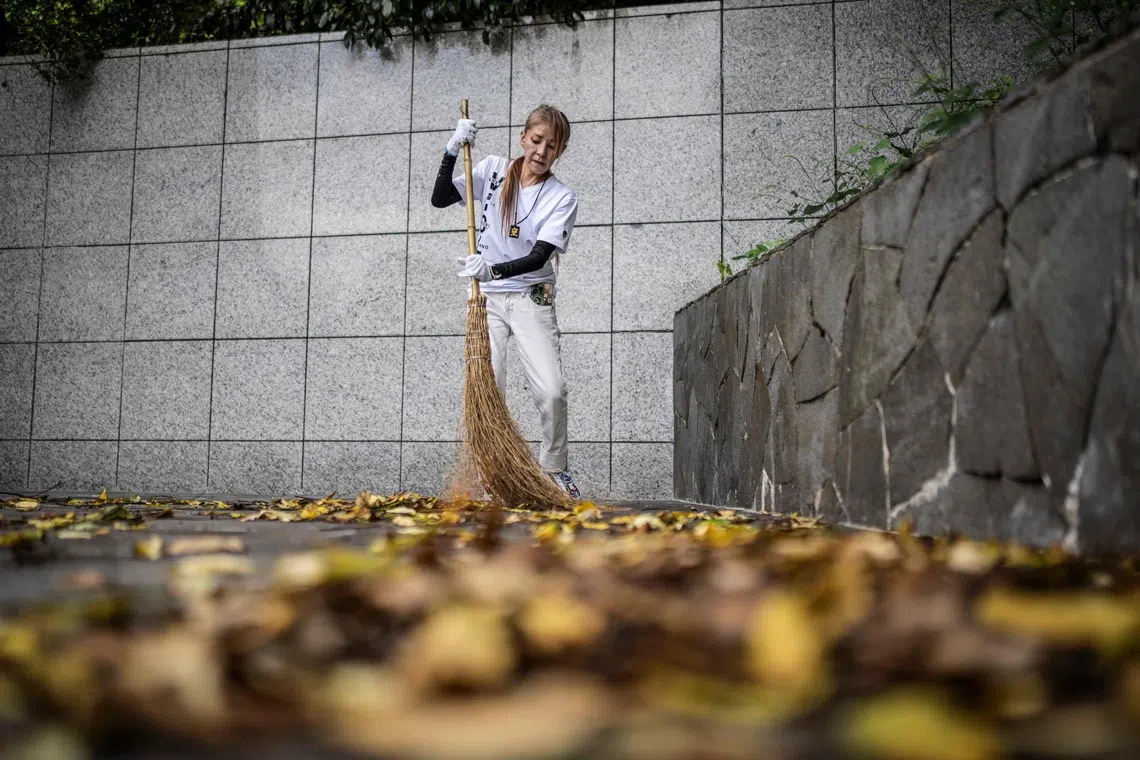
Ms Mako Nishimura sweeping fallen leaves during a cleaning activity with right-wing group members at the Gifu Gokoku shrine in Gifu on Sept 28.
PHOTO: AFP
Ms Nishimura said “the idea I’m doing something good for other people gives me confidence”.
“I’m slowly returning to a normal human being.”
‘King of villains’
Ms Nishimura grew up in a strict family, with a civil servant father who heavily pressured her academically.
As a teenager, she ran away from home and fell into crime, joining a major yakuza clan by the age of 20.
Brawls, extortions and selling illegal drugs soon became routine. She even cut off a fingertip as part of the yakuza’s ritualistic self-punishment for blunders.
But in her late 20s, Ms Nishimura absconded from the syndicate and was “excommunicated”, putting gangsterism behind her to marry and raise a son.
“For the first time, I felt a gush of maternal instinct. He was so cute, I thought I could die for him,” she said.
The determined new mother studied her way into the care and medical industries, only to be fired over her tattoos.
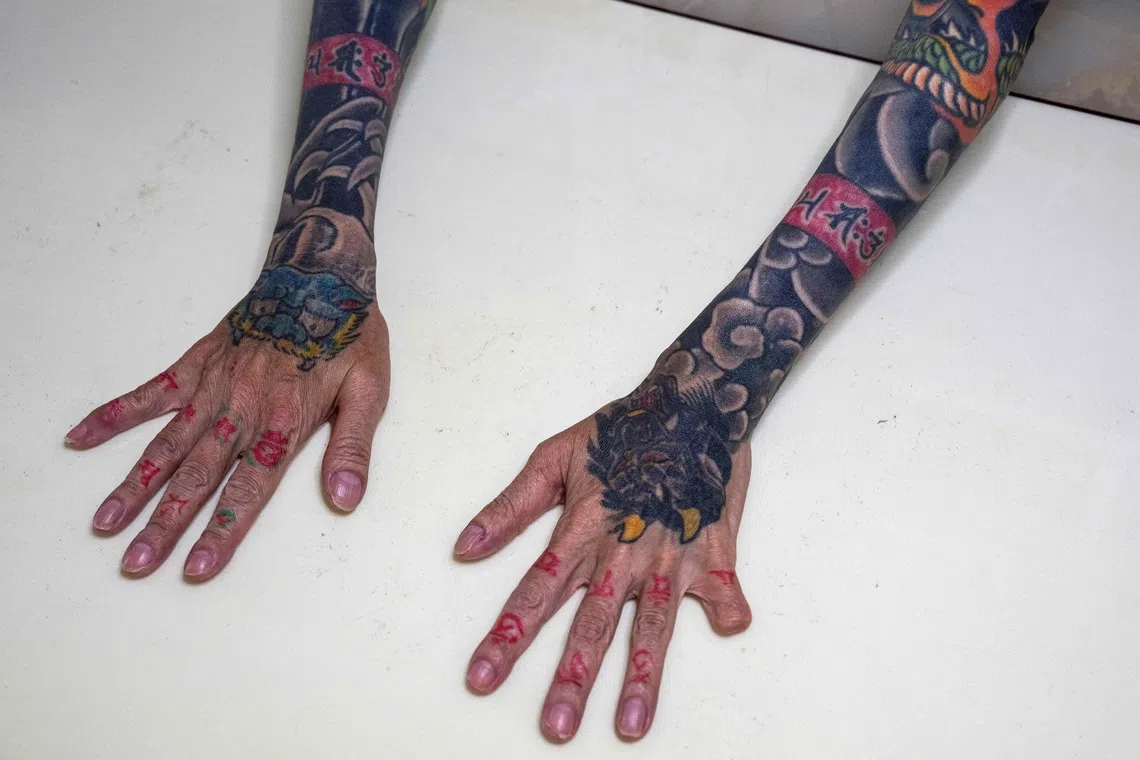
Ms Mako Nishimura showing her forearms heavily inked with dragon and tiger tattoos and a missing fingertip, that she had cut off as part of the yakuza’s ritualistic self-punishment for blunders.
PHOTO: AFP
Unsure where else to turn, she relapsed into selling stimulants.
In her late 40s, she rejoined her old yakuza organisation but found it poor and bereft of “dignity”.
The yakuza had thrived in the post-war bedlam of Japan, when it was at times seen as a necessary evil to bring order to the streets.
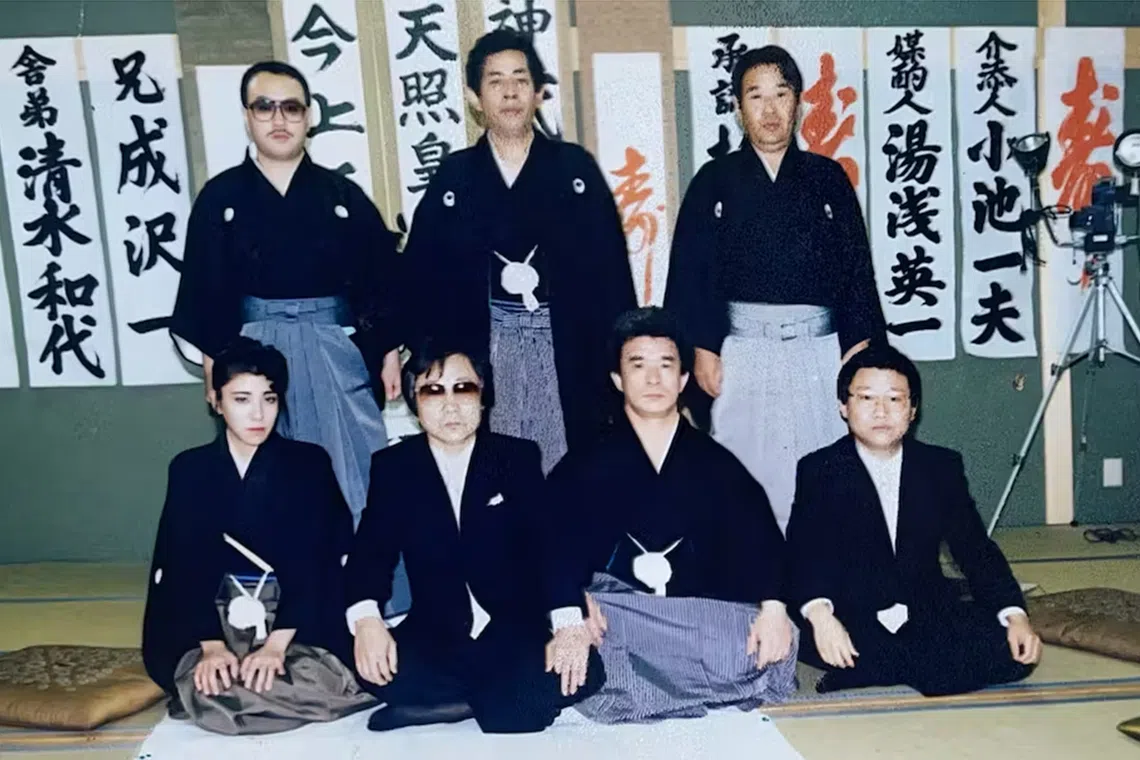
Ms Mako Nishimura (front row, far left) is the only woman to ever formally join a yakuza gang as a full member.
PHOTO: MAKO NISHIMURA
It still exists in a semi-legal grey area, but harsher anti-mafia laws have led to fewer people willing to do business with the mobsters.
“Yakuza used to be the king of villains,” she said, but seeing her old boss struggling to scrape money together disillusioned her to the extent that she quit the underworld shortly after her 50th birthday.
Today, Ms Nishimura has found a new mentor – Gojinkai chairman and prominent former gangster Satoru Takegaki – with proceeds from her recently published autobiography helping her make ends meet.
“I think yakuza will keep shrinking,” she said. “I hope they will become extinct.” AFP

